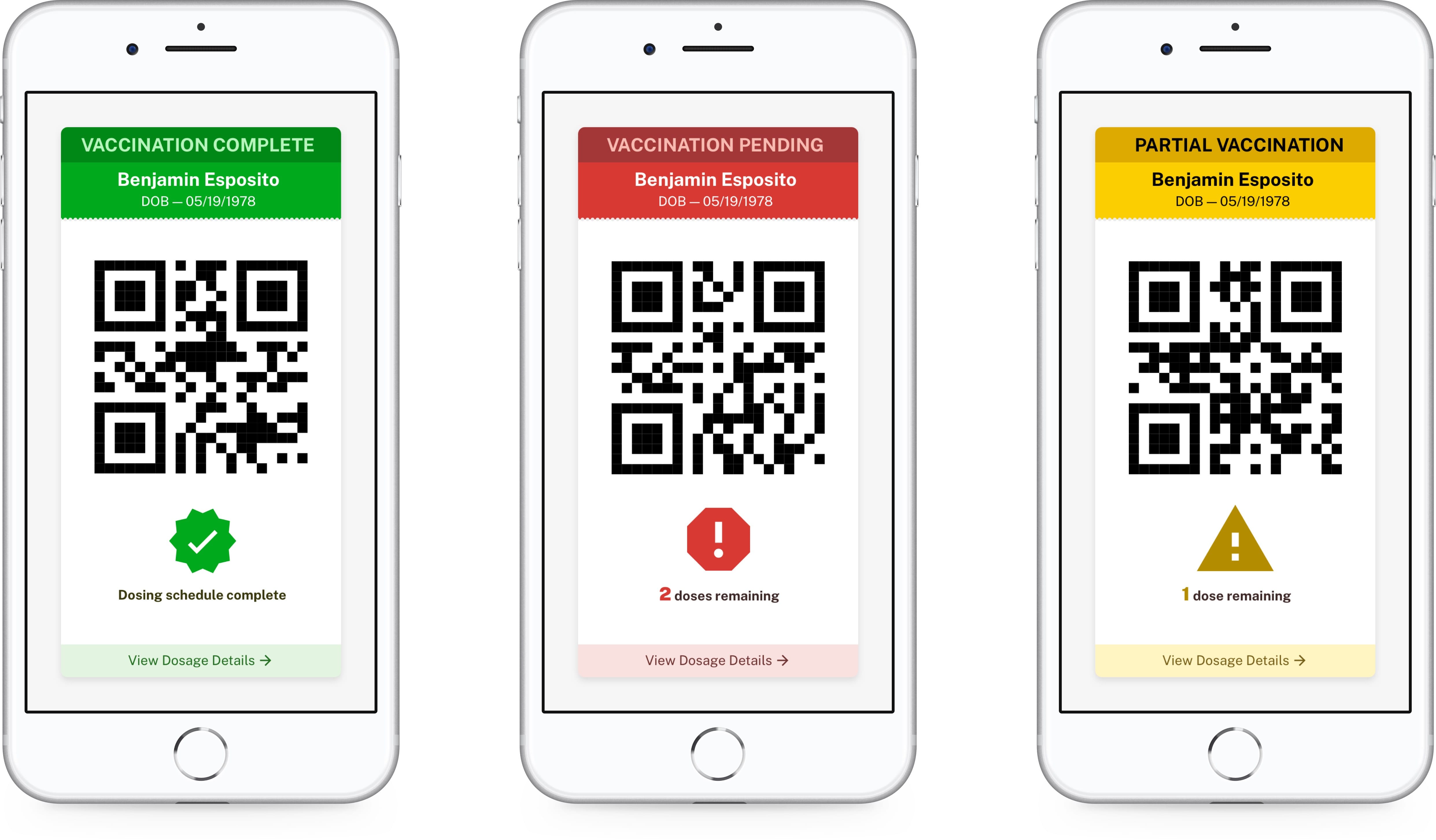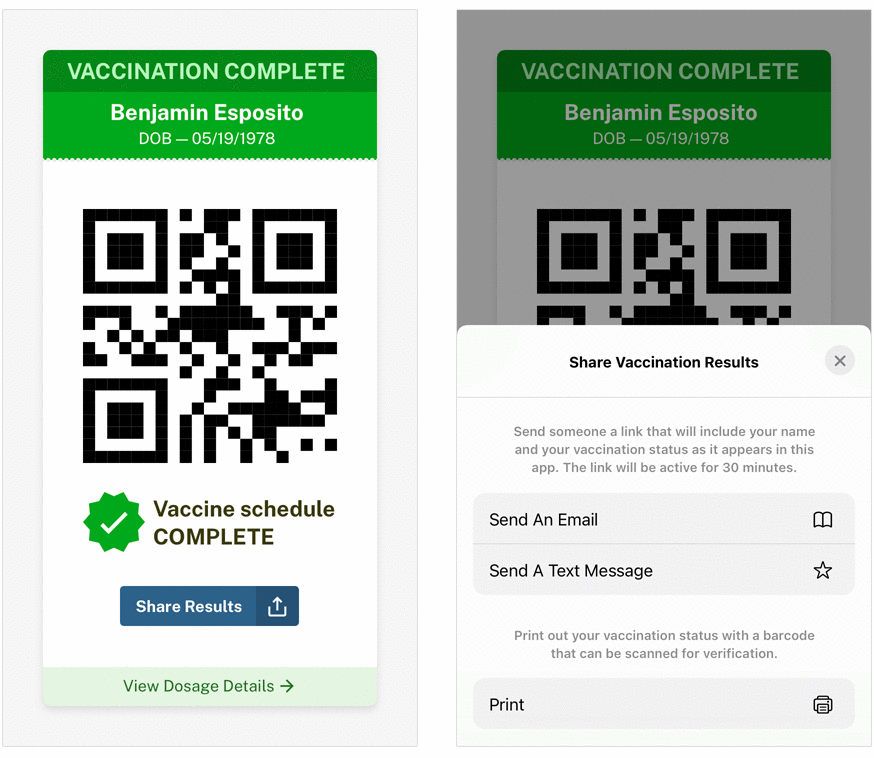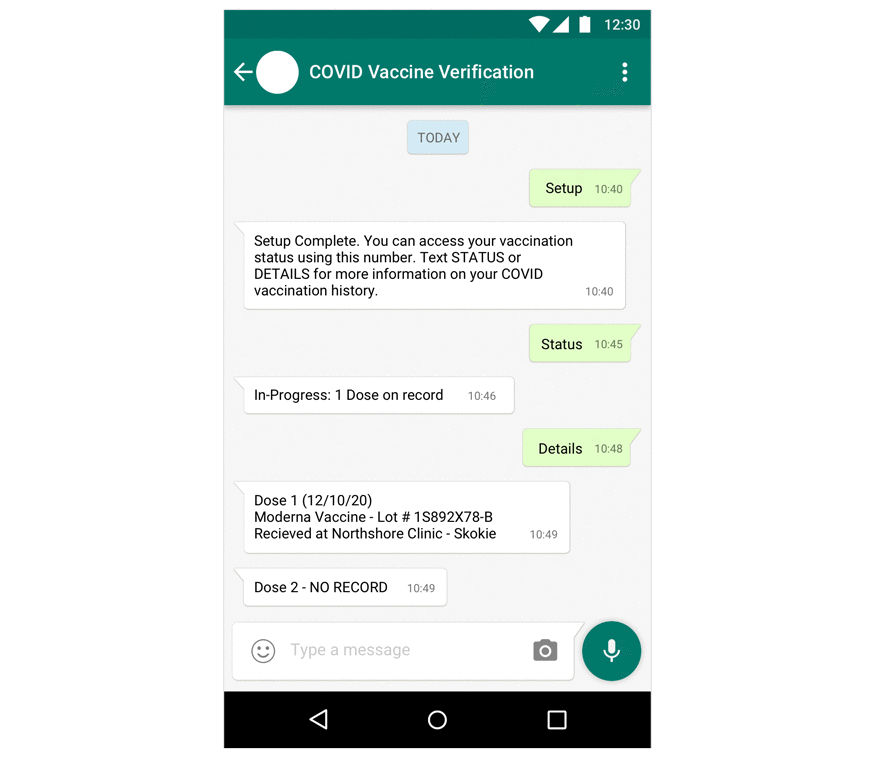Prototyping a COVID-19 vaccination verification app
While some private apps exist for this, the best organization to operate a high-trust, nation-wide vaccination verification application is the federal government. An application run by the federal government is accountable, auditable, and motivated by public service instead of profit. This can help build trust in the security and accuracy of the data while encouraging broad adoption of a shared vaccination verification system.
While no federal application exists yet, Ad Hoc has created a prototype that would allow Medicare beneficiaries to check their vaccination status in an easy-to-use web app. This would enable Medicare beneficiaries to log in using their existing Medicare credentials, look up their vaccination status, and receive a clear, easy-to-understand response. When live, this application would allow more than 60 million people to securely check their vaccination status from any device without creating a new account or providing any personal information beyond their Medicare login. Here’s a walkthrough of the prototype so far:
Under the hood
Ad Hoc created this prototype by using data from the Centers for Medicare & Medicaid Services Blue Button 2.0 API, which Ad Hoc also supports. The Blue Button API powers the Beneficiary Claims Data API, Data at the Point of Care, and other critical programs at CMS with data on Medicare Part A, B, and D beneficiaries, making it a natural choice for trusted, secure vaccination data. As Medicare beneficiaries receive vaccinations, physicians file claims for the expense of the vaccination and the adjudicated claims data feeds into the Blue Button API.
The application is built using the U.S. Web Design System (USWDS), which gives it an accessible foundation, and uses existing patterns and standards that should be familiar to users. People are rightly concerned about the privacy and security of their medical information, and the combination of the existing Blue Button and USWDS standards can help establish trust with users.

COVID vaccination applications must be accessible and easy to use for every person in the U.S. At Ad Hoc, we treat Section 508/WCAG accessibility as a core part of our work and not just a compliance box to check. For this early prototype, we’ve ensured the color combinations for text and other elements are a high enough contrast that users with low vision or color blindness can still complete the process. In addition, each representation of the vaccination state is shown both with a visual symbol for easy comprehension and a text symbol for low vision users. Any future development of this prototype would require additional user testing specifically for a wide range of Section 508 issues to ensure everyone could easily use the app.
Potential future features
Giving people the ability to easily look up their own vaccination status opens the door for a number of other critical services that could help the public navigate the world as vaccinations are rolled out across the country.
Increased data to cover more of the population
While we’ve focused initially on an implementation through the Medicare system, this single application could be adopted by a wide range of agencies, and eventually everyone who has been vaccinated, by adding additional data sources. One such early expansion could be into the Department of Veterans Affairs to provide the app to the more than nine million Veterans enrolled in the VA health care program.
Sharing vaccination status
As vaccinations roll out, certain activities such as boarding a plane or gaining entry to a large event may require people to prove they have been vaccinated. A single app operated by the federal government could provide a trusted source for the information while offering ways to share vaccination status that protect a user’s privacy, such as through a QR code.

Expanded ways to access the app
Everyone in the U.S. will eventually need a way to verify their vaccination status, including those without access to broadband or a smartphone, people who do not speak English, and those with a wide range of disabilities. A future version of the app could offer different ways to get the same level of service through SMS, text translated into multiple languages, or versions of the app that work on limited bandwidth or with assistive technology.

Integrate with vaccination rollout system
If someone checks their status and they have not been vaccinated, the app could provide them with information about nearby vaccination sites, easy scheduling options, and text reminders before their appointment.

Educational and health information
Vaccinating the entire country is a major public health campaign. As scientists learn more about the virus, they may discover critical information to share with the public. An app that people use daily to verify their vaccination status could be an efficient way to distribute information from a trusted source.
This initial prototype is meant to show what would be possible if a federal agency such as the Centers for Disease Control, the Centers for Medicare & Medicaid Services, or the Department of Veterans Affairs decided to build and operate a federal vaccination verification app. Ad Hoc has experience operating high-traffic, mission-critical applications such as HealthCare.gov, and we have the API and integration experience to bring together the various data sources and systems required to make this type of app work. If done well, a single COVID-19 vaccination application designed to meet the needs of the public could build a tremendous amount of trust in government while speeding the rollout of vaccination and making it easier for people to return to normal activities.
Related posts
- Prototyping a COVID-19 vaccination verification app
- Ad Hoc, Fearless, and Ellumen win contract to continue support of Blue Button 2.0
- With existing tools, the IRS could connect people with healthcare
- Imagining an app to simplify student loan forgiveness
- Modernizing how Medicare beneficiaries find and enroll in coverage
- Supporting the busiest time of the year for Medicare beneficiaries